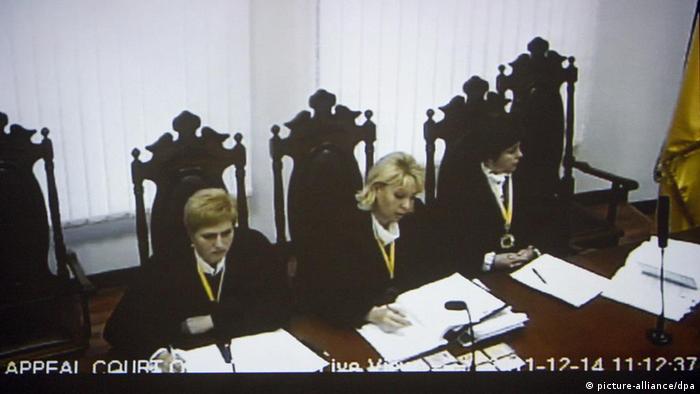 After three months the new Ukrainian government has not even begun the cleans of the government system from corruption, traitors and former KGB agents, concludes the Lustration committee.
After three months the new Ukrainian government has not even begun the cleans of the government system from corruption, traitors and former KGB agents, concludes the Lustration committee.
The members of the Verkhovna Rada ended up not passing the law regarding lustration in spring. Therefore the Lustration committee still remains with the status of a civil organisation, and its activists are working exclusively for enthusiasm, though after Maidan the politicians obliged themselves to give it a special state status for the carrying out of full-fledged lustration. “The new top officials did not want to break the corrupt system, but wanted to lead it instead. We have deposed Yanukovych, but his system remains and continues working, however, with new leaders,” concludes the head of the Lustration committee Yegor Sobolev.
Sobolev was given power by the Maidan Council to carry out lustration after the fall of Yanukovych’s regime. For this, the civil activists have already developed four bills regarding lustration in order to legally carry out cleanses of the governance system. However none of them have been examined by the members of the Parliament as of yet. The representatives of civil society intend to present the fifth document on Friday, June 13th, to the new President Petro Poroshenko, so that he puts it up for examination by the Verkhovna Rada. “We have developed a document for him, for it to be the first presidential law. We have done all the legal work. He only has to use his political influence to begin lustration,” said Yegor Sobolev to Deutsche Welle.
Lustration against ghosts of the past
The head of the Lustration committee admits that the idea of lustration is only supported by individual members of the Verkhovna Rada and there is not a single political power that is ready to vote for the bills developed by the civil activists. This is concluded by Yevgen Zakharov, head of the Ukrainian Helsinki Human Rights Community, as well. This organisation has also presented its own bill regarding lustration to the members of the Verkhovna Rada. “The Parliament does not want to approve the law regarding lustration because part of the members of the Verkhovna Rada will be forced to leave after this lustration. And who wants to kick themselves out!?” says Zakharov.
The human rights activist emphasises that lustration is not beneficial to the current Ukrainian politicians, as the criteria of the government and lower official cleanse are grounded in the historical past. The activists propose to prevent former communists, KGB agents and corruptionists to the government, as well as the workers of the law enforcement bodies that spied and arrested activists, violated human rights at the peaceful Euromaidan gatherings. “Russia’s example shows that when former KGB agents come to power, it has sad consequences,” emphasises Zakharov.
Ambitious plans
The Lustration committee wants a more thorough lustration, judging from its bill, starting with the heads of state government bodies, which during the revolution did not leave their posts, those that supported the annex of Crimea and the violation of Ukraine’s territorial integrity and those who “cannot explain the sources of their revenues and that of their families,” and ending with former heads of the Komsomol and communist party organisations in the Soviet Union.
As, according to Sobolev, there are numerous officials with Soviet mentalities and stereotypes of thinking left in the government structures of Ukraine. “They are ready to force and oppress the people, but not serve them. And KGB agents became the grounds for the reign of the Russian special services which, to my mind, are still in charge in law enforcement structures of Ukraine,” thinks Yegor Sobolev. This is how he explains the unwillingness of the Ukrainian Parliament members to approve the lustration law.
Lustration before the elections
Meanwhile the Verkhovna Rada denies the accusations of inactivity regarding the preparation of the lustration law. Valeriy Patskan, member of the according Parliament work group, author of one of the lustration bills, member of UDAR fraction, claims that his fraction stands for the immediate approval of one of the bills regarding lustration in the first reading, in order to unite all the developments of the civil activists into one document later. Patskan does not exclude that during the next plenary week the Verkhovna Rada will start to examine one of the lustration bills. The member of the parliament blames his colleagues from the session hall. “The Parliament does not want to work in this direction. Its complete reboot is necessary, as there are 187 “regionals” there who are trying to get preferences only,” admits Valeriy Patskan. Nonetheless, he is hoping that the lustration bill is passed before the early parliamentary elections.
Source: DW
Translated by Mariya Shcherbinina






